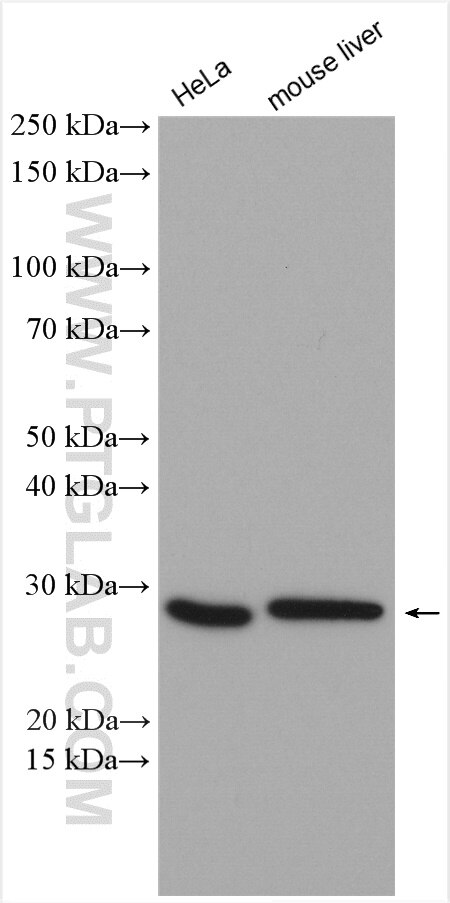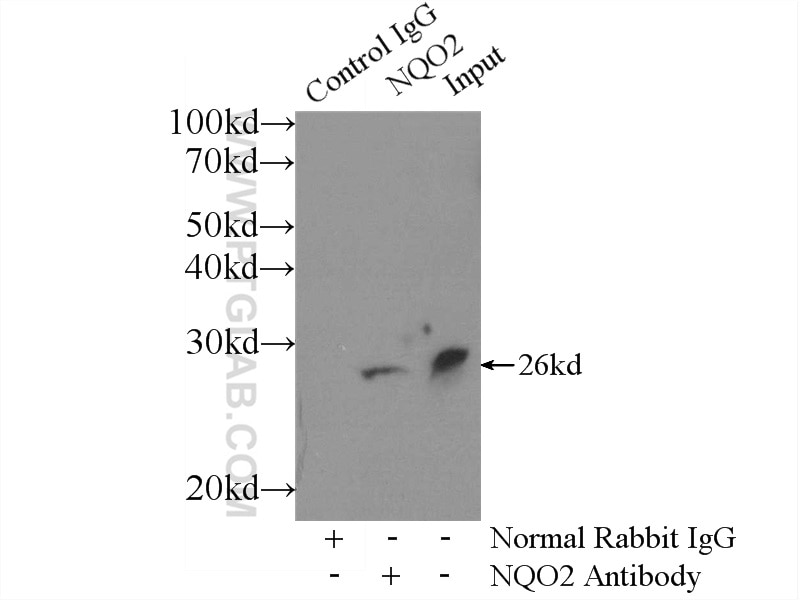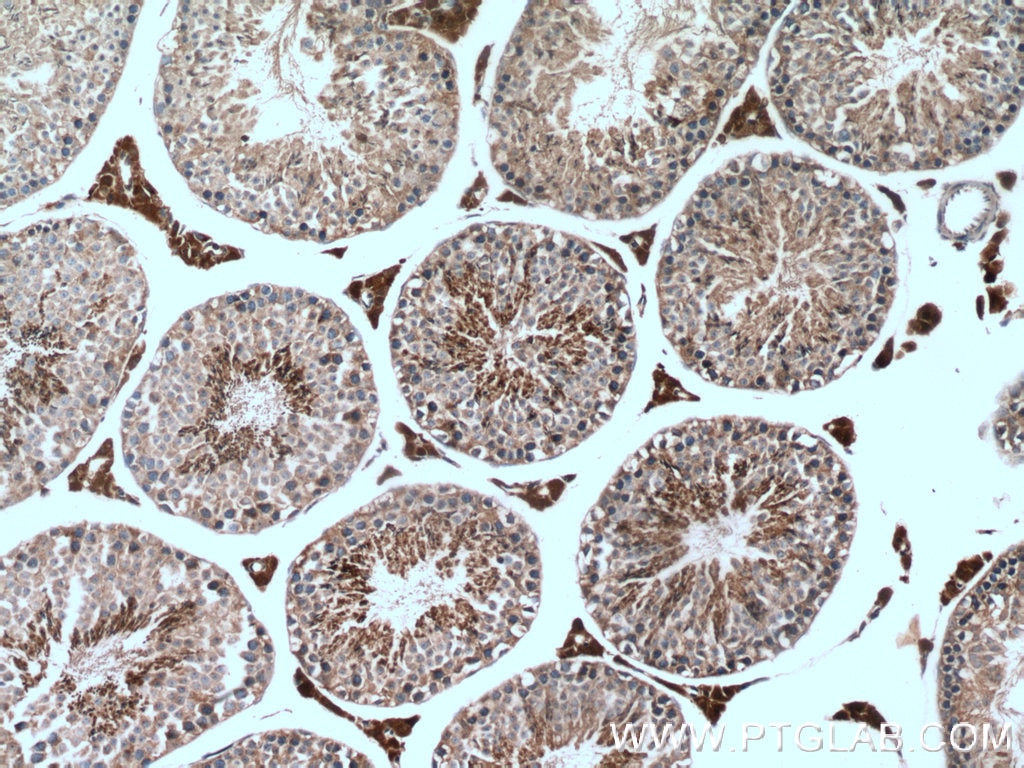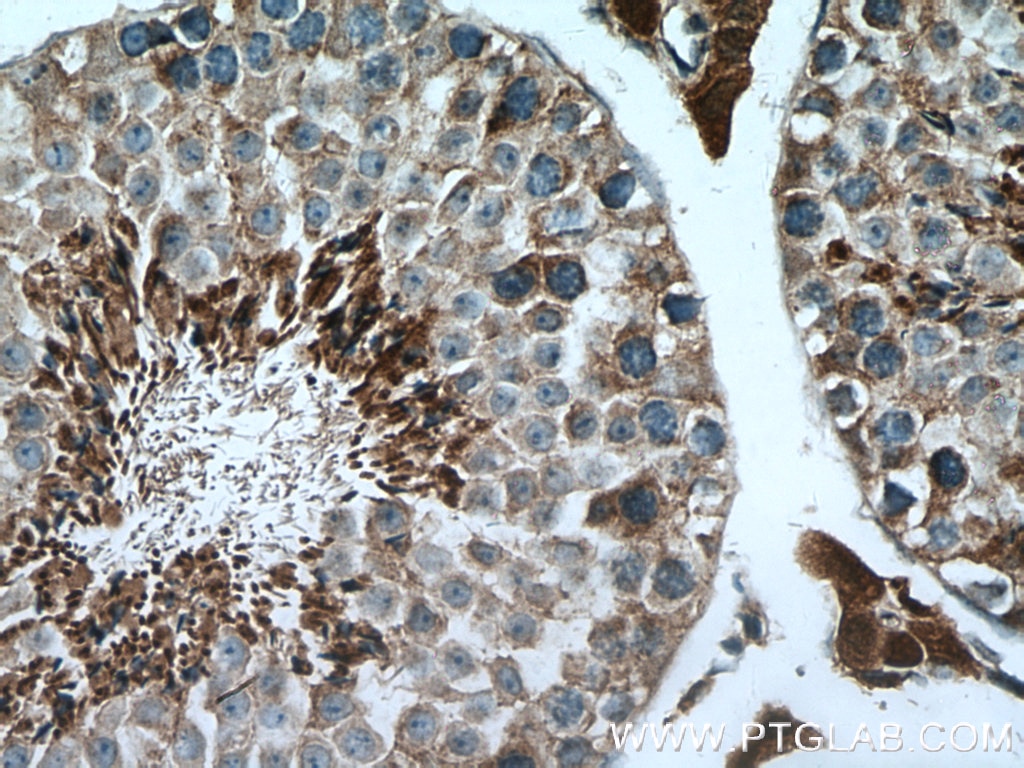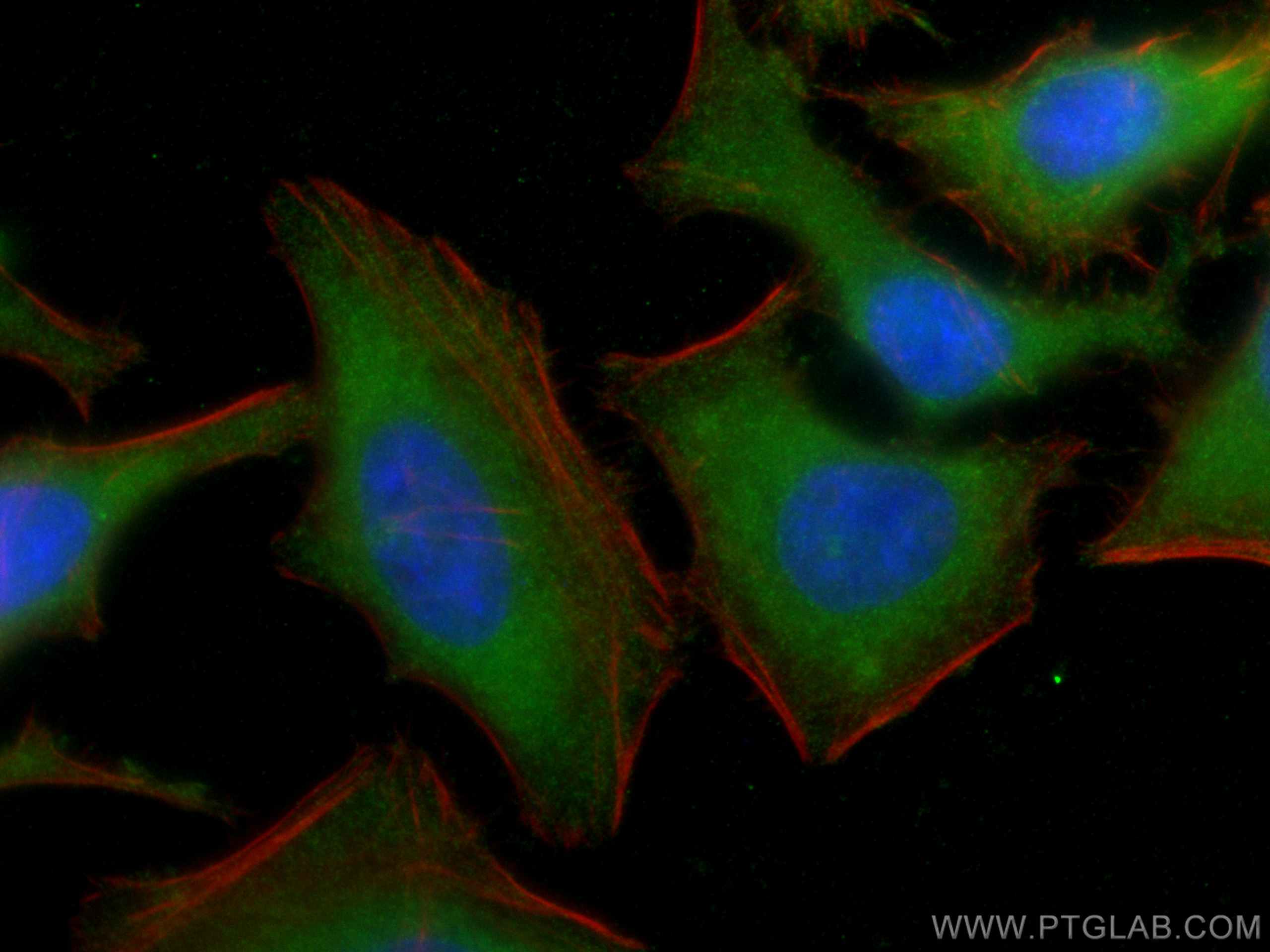- Featured Product
- KD/KO Validated
NQO2 Polyklonaler Antikörper
NQO2 Polyklonal Antikörper für IF, IHC, IP, WB, ELISA
Wirt / Isotyp
Kaninchen / IgG
Getestete Reaktivität
human, Maus und mehr (1)
Anwendung
WB, IP, IHC, IF, ELISA
Konjugation
Unkonjugiert
Kat-Nr. : 15767-1-AP
Synonyme
Galerie der Validierungsdaten
Geprüfte Anwendungen
| Erfolgreiche Detektion in WB | HeLa-Zellen, Mauslebergewebe |
| Erfolgreiche IP | HeLa-Zellen |
| Erfolgreiche Detektion in IHC | Maushodengewebe Hinweis: Antigendemaskierung mit TE-Puffer pH 9,0 empfohlen. (*) Wahlweise kann die Antigendemaskierung auch mit Citratpuffer pH 6,0 erfolgen. |
| Erfolgreiche Detektion in IF | HeLa-Zellen |
Empfohlene Verdünnung
| Anwendung | Verdünnung |
|---|---|
| Western Blot (WB) | WB : 1:1000-1:4000 |
| Immunpräzipitation (IP) | IP : 0.5-4.0 ug for 1.0-3.0 mg of total protein lysate |
| Immunhistochemie (IHC) | IHC : 1:200-1:800 |
| Immunfluoreszenz (IF) | IF : 1:200-1:800 |
| It is recommended that this reagent should be titrated in each testing system to obtain optimal results. | |
| Sample-dependent, check data in validation data gallery | |
Veröffentlichte Anwendungen
| KD/KO | See 2 publications below |
| WB | See 8 publications below |
Produktinformation
15767-1-AP bindet in WB, IP, IHC, IF, ELISA NQO2 und zeigt Reaktivität mit human, Maus
| Getestete Reaktivität | human, Maus |
| In Publikationen genannte Reaktivität | human, Maus, Ratte |
| Wirt / Isotyp | Kaninchen / IgG |
| Klonalität | Polyklonal |
| Typ | Antikörper |
| Immunogen | NQO2 fusion protein Ag8403 |
| Vollständiger Name | NAD(P)H dehydrogenase, quinone 2 |
| Berechnetes Molekulargewicht | 231 aa, 26 kDa |
| Beobachtetes Molekulargewicht | 26 kDa |
| GenBank-Zugangsnummer | BC006096 |
| Gene symbol | NQO2 |
| Gene ID (NCBI) | 4835 |
| Konjugation | Unkonjugiert |
| Form | Liquid |
| Reinigungsmethode | Antigen-Affinitätsreinigung |
| Lagerungspuffer | PBS mit 0.02% Natriumazid und 50% Glycerin pH 7.3. |
| Lagerungsbedingungen | Bei -20°C lagern. Nach dem Versand ein Jahr lang stabil Aliquotieren ist bei -20oC Lagerung nicht notwendig. 20ul Größen enthalten 0,1% BSA. |
Hintergrundinformationen
NQO2, also named as QR2 and NMOR2, belongs to the NAD(P)H dehydrogenase (quinone) family. It serves as a quinone reductase in connection with conjugation reactions of hydroquinones involved in detoxification pathways as well as in biosynthetic processes such as the vitamin K-dependent gamma-carboxylation of glutamate residues in prothrombin synthesis. The cytosolic quinone oxidoreductases NQO1 and NQO2 protect cells against oxidative stress by detoxifying quinones and preventing redox cycling. NQO1 and NQO2 are important endogenous factors in regulation of immune response and autoimmunity.
Protokolle
| Produktspezifische Protokolle | |
|---|---|
| WB protocol for NQO2 antibody 15767-1-AP | Protokoll herunterladen |
| IHC protocol for NQO2 antibody 15767-1-AP | Protokoll herunterladen |
| IF protocol for NQO2 antibody 15767-1-AP | Protokoll herunterladen |
| IP protocol for NQO2 antibody 15767-1-AP | Protokoll herunterladen |
| Standard-Protokolle | |
|---|---|
| Klicken Sie hier, um unsere Standardprotokolle anzuzeigen |
Publikationen
| Species | Application | Title |
|---|---|---|
Antioxidants (Basel) Apigenin and Luteolin Regulate Autophagy by Targeting NRH-Quinone Oxidoreductase 2 in Liver Cells. | ||
J Exp Clin Cancer Res PRX1 knockdown potentiates vitamin K3 toxicity in cancer cells: a potential new therapeutic perspective for an old drug. | ||
J Proteome Res Proteomic and Phosphoproteomic Analysis of Right Ventricular Hypertrophy in the Pulmonary Hypertension Rat Model | ||
Cell Physiol Biochem Downregulation of quinone reductase 2 attenuates vascular smooth muscle cells proliferation and neointimal formation in balloon injured rat carotid artery.
| ||
Life Sci Alliance Tanshinone functions as a coenzyme that confers gain of function of NQO1 to suppress ferroptosis | ||
J Neural Transm (Vienna) The specific NQO2 inhibitor, S29434, only marginally improves the survival of dopamine neurons in MPTP-intoxicated mice |
